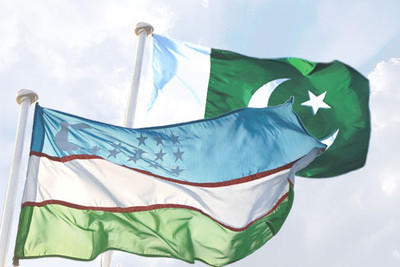Uzbekistan is pressing ahead with plans to diversify transport corridors through Afghanistan, calling the move vital for regional cooperation, trade expansion, and strengthening global supply chains.
According to Usmonjon Mukhtorjanov, Head of Department at the Center for the Study of Problems of Transport and Logistics Development under the Ministry of Transport, routes via Afghanistan provide the shortest access for Central Asian countries to Indian Ocean ports and hold strategic geopolitical significance.
At the heart of this vision is the proposed Trans-Afghan Railway, which would connect Termez in Uzbekistan to Pakistan’s ports of Karachi and Gwadar via Naibabad, Logar, and Kharlachi. Once operational, it is expected to cut transport costs by up to four times and sharply reduce delivery times for cargo between Europe, East Asia, and South Asia.
“Afghanistan is the only railway bridge connecting our region to South Asia and the Indian Ocean,” Mukhtorjanov said. “Its transit potential is a priority for Uzbekistan’s foreign trade strategy.”
President Shavkat Mirziyoyev has also stressed engagement with Afghanistan over isolation. “For sustainable development in Central Asia, it is important to restore Afghanistan’s internal transport links and expand its transit capabilities,” he said, describing the Trans-Afghan Railway as a national priority. He added that linking it to the planned China–Kyrgyzstan–Uzbekistan railway would further boost regional trade and create an efficient logistics chain.
Analysts note that Afghanistan’s integration into wider transport networks could generate jobs through railway construction, logistics hubs, and border terminals. One proposed corridor stretching from Belarus through Russia, Kazakhstan, Uzbekistan, Afghanistan, and into Pakistan underscores Afghanistan’s role as a strategic artery connecting Europe with South Asia.
Mukhtorjanov emphasized that disruptions to global trade routes — including instability in northern corridors and challenges in the Red Sea — are pushing countries to seek alternatives, making the Afghan passage increasingly critical.
Experts argue that by positioning itself at the center of these new supply lines, Uzbekistan is not only expanding its trade potential but also strengthening its role as Central Asia’s main logistics hub — a strategy that extends beyond economics to fostering peace, stability, and regional cooperation.




